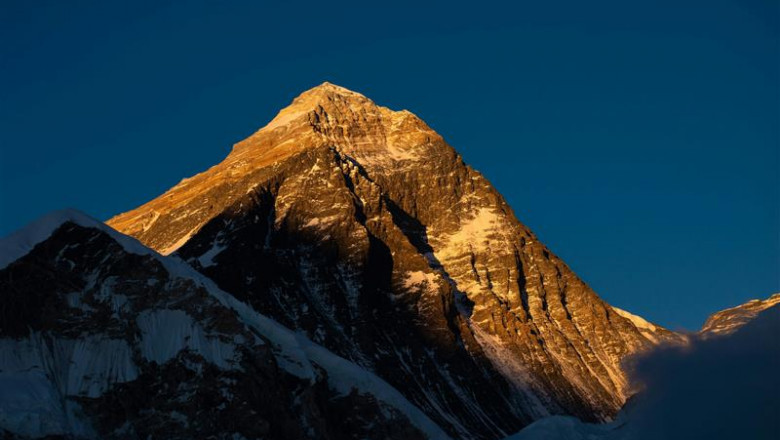views
The Everest Three Passes Trek is not just another walk in the Himalayas. It Is one of the most demanding trails out there. It takes you through three high-altitude mountain passes Kongma La, Cho La, and Renjo La each above 5,000 meters. You face long days of walking, cold nights, and tough climbs. Many travelers come with the dream to complete it, but not everyone makes it to the end.
As someone who works as a trekking guide, I have seen what helps people succeed and what holds them back. One of the biggest mistakes some trekkers make is thinking they can do it all on their own without a guide or a porter. Some believe it’s easy to find the way or carry everything by themselves. But this trail is different. It tests your limits, and sometimes, even your spirit.
Let me explain why having a guide and porter is not just helpful but necessary.
You Don’t Just Need Direction, You Need Local Knowledge
Many people think a map or a GPS is enough. But when snow covers the trail, signs disappear, and everything looks the same, those tools can fail. I’ve helped many lost trekkers who took a wrong turn or underestimated the route. In bad weather, trails can be dangerous. A guide knows the safe paths, the right time to cross a pass, and when it’s better to rest than to move forward.
Also, many villages have different customs, and lodges can fill up fast. A guide helps arrange food and beds ahead of time. If someone gets altitude sickness, we know how to spot the signs early. We can make quick decisions to get help or change the plan if needed.
Porters Are the Real Heroes Behind the Scenes
Most trekkers bring heavy backpacks. Clothes, sleeping bags, snacks, gadgets it all adds up. But walking at high altitude with that much weight on your back is not easy. Breathing becomes harder, steps feel heavier, and even short climbs become tiring.
That’s where a porter comes in. They carry your load so you can focus on walking and enjoying the journey. Some people feel guilty hiring a porter, thinking it’s unfair. But porters are skilled and used to the conditions. It’s their job and they take pride in helping others reach their goals. Hiring them also supports their families and brings income to remote villages.
Unexpected Problems Happen – A Guide Solves Them
On this trek, I have seen people fall ill, twist ankles, and even freeze up with fear on narrow paths. When these things happen, a guide is not just someone who walks ahead. We give comfort, make smart choices, and sometimes act as translators between trekkers and locals. In remote places, mobile networks don’t always work. Having someone who knows what to do without panic can change the outcome of the trip.
Once, a trekker in my group had signs of altitude sickness after crossing Cho La Pass. He wanted to keep going. I knew that would be dangerous. We decided to rest an extra day, even though it delayed us. That one decision helped him recover fully and finish the trek. Without a guide, he might have pushed forward and ended up needing a rescue.
A Guide Adds More Than Just Safety
Many travelers forget that trekking is not only about reaching a high point. It’s also about the people, the culture, and the little stories along the way. Guides share those details. We explain why a stupa is built in a certain place, what the prayer flags mean, or how Sherpas live in the mountains.
We become friends with the group. We laugh, share stories, and even help celebrate birthdays in the mountains. A good guide is more than a professional he’s a part of your journey.
A Team Makes the Trek Worth It
Doing the Everest Three Passes Trek without support may sound brave, but it can also be risky and lonely. Trekking with a guide and porter brings safety, comfort, and a sense of connection. It’s a tough route, but with the right people by your side, you’re more likely to complete it and enjoy it.
Every step in the Himalayas teaches something. With a guide and a porter, those lessons become memories, not mistakes.
So, if you are planning to walk the Everest Three Passes Trek, go with a team. You’ll walk lighter, sleep warmer, and return home not just with photos but with stories worth sharing.














Comments
0 comment